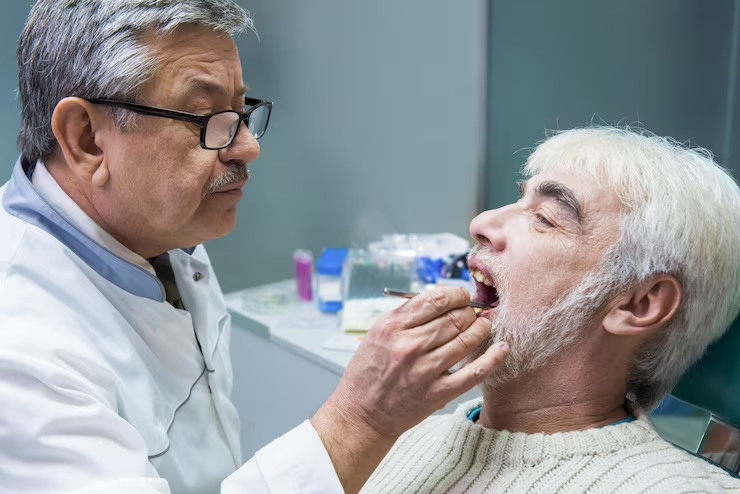Gut health plays an essential role in our overall well-being. A balanced, thriving gut microbiome is crucial for digestion, immune function, mental health, and much more. Unfortunately, due to modern diets, sedentary lifestyles, and stress, many people suffer from gut-related issues. If you’re looking to improve your gut health, you’re not alone. In this guide, we’ll explore practical steps and lifestyle changes you can adopt to support a healthy gut.
1. Understanding Gut Health
Before diving into strategies for improvement, it’s important to understand what gut health really means. Your gut microbiome consists of trillions of bacteria, fungi, and other microorganisms that live in your digestive system. These microbes play a critical role in:
- Digestion: Helping break down food and absorb nutrients.
- Immune System: Protecting your body from harmful pathogens.
- Mental Health: Producing neurotransmitters like serotonin that affect mood and emotions.
- Inflammation: Balancing inflammation in the body.
When the gut microbiome is out of balance, it can lead to issues like bloating, indigestion, fatigue, and even mental health problems. Therefore, maintaining a healthy gut is vital to your overall health.
2. Diet Plays a Key Role in Gut Health
The foods you consume directly impact the health of your gut. Here’s how you can use your diet to nourish your gut microbiome.
A. Eat a Variety of Fiber-Rich Foods
Fiber is the fuel for healthy gut bacteria. High-fiber foods like vegetables, fruits, whole grains, and legumes encourage the growth of beneficial bacteria and improve bowel movement. The more diverse your fiber intake, the more diverse your gut microbiome will be.
Foods to include:
- Leafy greens (spinach, kale, arugula)
- Berries (blueberries, strawberries, raspberries)
- Whole grains (quinoa, oats, brown rice)
- Beans and legumes (lentils, chickpeas, black beans)
B. Incorporate Fermented Foods
Fermented foods are rich in probiotics — live bacteria that promote a healthy gut environment. Probiotics help restore the balance of good bacteria in the gut and can improve digestion and immunity.
Popular fermented foods to try:
- Yogurt (with live and active cultures)
- Sauerkraut
- Kimchi
- Kefir
- Miso
- Pickles (fermented, not vinegar-based)
C. Prebiotics Are Also Important
Prebiotics are non-digestible fibers that act as food for beneficial gut bacteria. They support the growth of healthy bacteria in the digestive tract. Prebiotics are typically found in fruits, vegetables, and whole grains.
Prebiotic-rich foods include:
- Bananas
- Garlic
- Onions
- Leeks
- Asparagus
- Jerusalem artichokes
D. Avoid Processed and Sugary Foods
While fermented foods promote good gut bacteria, processed and sugary foods encourage the growth of harmful bacteria and yeast. These foods can disrupt the balance of your gut microbiome, leading to inflammation and digestive issues.
Limit or avoid:
- Sugary snacks and beverages
- Processed meats
- Refined grains (white bread, pastries)
- Artificial sweeteners
3. Stay Hydrated
Drinking enough water is essential for maintaining a healthy gut. Water helps in digestion and absorption of nutrients. Staying hydrated also supports the mucosal lining of the intestines, which plays a protective role against harmful microbes and pathogens.
Aim to drink at least 8 glasses (about 2 liters) of water per day, but this may vary based on individual needs and activity levels. Herbal teas like ginger or peppermint tea can also support digestion and gut health.
4. Exercise Regularly
Regular physical activity is not only good for your body, but it also has a positive impact on your gut health. Exercise helps promote the growth of beneficial gut bacteria and can help alleviate constipation and bloating.
Studies show that moderate exercise can increase the diversity of gut microbes, which is linked to better overall gut health. Activities like walking, cycling, and swimming are excellent for promoting gut health.
5. Manage Stress Levels
Stress can negatively affect your gut health. Chronic stress triggers an imbalance in gut bacteria and can lead to digestive issues, inflammation, and an increased risk of conditions like irritable bowel syndrome (IBS).
To reduce stress, consider adopting relaxation techniques such as:
- Meditation or mindfulness
- Yoga or tai chi
- Deep breathing exercises
- Journaling or creative hobbies
Ensuring adequate sleep is also critical, as poor sleep patterns can worsen stress and disrupt the gut microbiome. Aim for 7-9 hours of quality sleep each night.
6. Avoid Overuse of Antibiotics
Antibiotics are life-saving medications, but they can also harm your gut microbiome. These drugs kill both harmful and beneficial bacteria in your system, which can lead to dysbiosis — an imbalance in gut bacteria.
If antibiotics are necessary, always take them as prescribed, and avoid using them for minor illnesses like colds. After taking antibiotics, you might consider replenishing your gut with probiotics to help restore healthy bacteria levels.
7. Take Probiotic Supplements
While it’s best to get probiotics from food sources, some people may benefit from probiotic supplements. These supplements can help repopulate the gut with beneficial bacteria, especially after a course of antibiotics or when experiencing digestive issues like bloating or diarrhea.
Consult with a healthcare provider before starting probiotic supplements to ensure they are suitable for your health condition.
8. Avoid Smoking and Limit Alcohol
Smoking and excessive alcohol consumption both negatively impact gut health. Smoking disrupts the balance of gut bacteria and increases the risk of conditions like Crohn’s disease and ulcerative colitis. On the other hand, alcohol can irritate the digestive tract and lead to an imbalance in gut microbes.
If possible, quit smoking, and limit alcohol intake to moderate levels. For men, this means up to two drinks per day, and for women, one drink per day.
9. Support Gut Health with Natural Supplements
In addition to probiotics, certain natural supplements can help promote gut health. These include:
- Prebiotic supplements: These can help nourish beneficial gut bacteria.
- Digestive enzymes: These can assist with digestion and reduce bloating and indigestion.
- L-glutamine: An amino acid that supports the integrity of the gut lining and may help with conditions like leaky gut syndrome.
As with any supplement, consult with a healthcare provider before adding them to your routine.
10. Monitor Food Sensitivities
Some individuals may experience gut discomfort due to food sensitivities or allergies. Common culprits include gluten, dairy, and FODMAP-rich foods (fermentable oligosaccharides, disaccharides, monosaccharides, and polyols). If you suspect certain foods are causing digestive issues, consider keeping a food journal to track symptoms and identify triggers.
If needed, consult with a nutritionist or healthcare provider to assess and manage food sensitivities properly.
Conclusion
Improving your gut health is a gradual process, but it’s an investment that pays off with better digestion, enhanced immunity, and improved mental well-being. By adopting a gut-friendly diet rich in fiber, prebiotics, and probiotics, staying active, managing stress, and taking care of your overall lifestyle, you can support a thriving gut microbiome and enhance your health.
Remember that each individual’s gut health is unique. It’s important to listen to your body and consult with a healthcare professional if you experience persistent gut issues or discomfort. Making small, sustainable changes over time will lead to significant improvements in your gut health, ultimately enhancing your quality of life.











